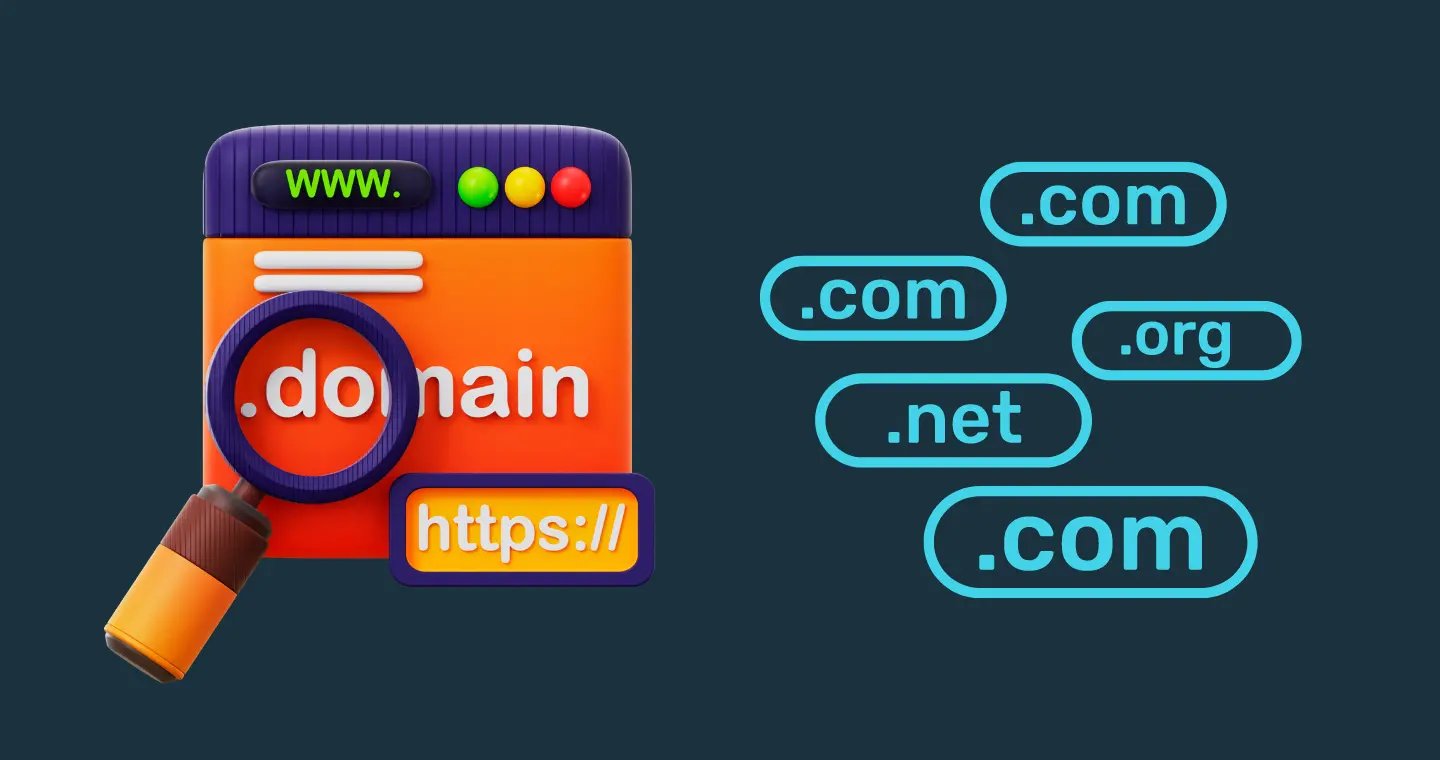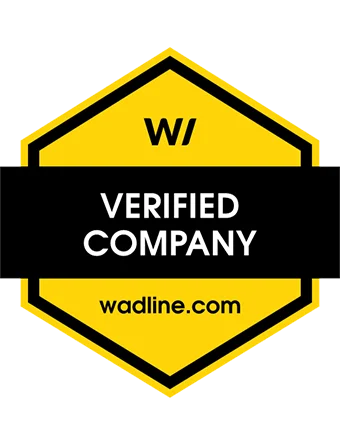Popular Tools by VOCSO
The success of your website depends on selecting the appropriate domain name because it will be the first thing that visitors will see and remember. Your website’s domain name serves as its online identity and is essential for establishing your brand and spreading your message to the public.
Everything you need to know about selecting a domain name in 2023 will be covered in this book, from the fundamentals of domain names to the most effective methods for doing so. We will go through the significance of domain extensions, how to do domain name research and brainstorming, how to check a domain name’s availability and much more.
This guide will give you the information and resources you need to pick a domain name that will make your website successful in 2023 and beyond. So let’s get going!
Table of Contents
How to Choose a Domain Name in 2023
Any company or person wishing to have an online presence must choose the appropriate domain name. A domain name acts as the URL for your website and is how online users will find you. There are several things to think about in 2023 while selecting a domain name.
First of all, keep it short and easy to remember because this makes it simpler to type. You should also pick a domain name that is distinctive to your organization or sector and may be used to build a brand.
Search engine optimization (SEO) can be aided by using pertinent keywords in your domain name, but it’s crucial to avoid overdoing it. Additionally, you should pick the appropriate top-level domain (TLD), such as.com or a regional TLD.
Avoid using hyphens and numerals in your domain name because they might be difficult to remember and make you appear amateurish. Check for trademark issues before registering a domain name. Last but not least, if you’re having trouble thinking of a domain name, think about employing a domain name generator tool to produce suggestions. You may select a domain name that effectively expresses your business, increases your online exposure, and makes you stand out from the competition by using the advice in this article. In this article, we’re going to explore all these things in detail.
1. Brainstorming
A. Determine your target market and niche:
Before selecting a domain name, it’s critical to know who your target market and niche are. This will enable you to reduce the number of potential choices and select a domain name that both accurately describes your company and appeals to your target market.
When it comes to selecting a domain name for your business, it’s essential to consider your target market and niche. Your target market refers to the specific group of people who you aim to sell your product or service, while your niche is the particular area or industry in that your business operates.
For example, if you run a vegan bakery in New York City, your target market would be people who are interested in veganism and plant-based diets. Your niche would be the vegan food industry, specifically baked goods.
Knowing your target market and niche is crucial because it helps you choose a domain name that accurately describes your business and appeals to your potential customers. If your domain name reflects your niche and target market, it can help attract the right audience to your website.
For instance, if your vegan bakery is called “Soy Sweet Bakery,” a domain name like “soysweetbakery.com” would be appropriate. It clearly communicates the niche and target market, making it easier for potential customers to find and remember your website.
Identifying your target market and niche is a crucial step in selecting a domain name that accurately reflects your business and attracts the right audience.
B. Select terms and synonyms that are appropriate for your niche:
When choosing a domain name for your business, it’s important to consider relevant keywords and synonyms that are associated with your niche. This is because search engines like Google use algorithms to crawl and index websites based on their content and relevance to specific search terms. By incorporating relevant keywords into your domain name, you can improve your website’s chances of ranking higher in search engine results pages (SERPs) for those terms.
For example, let’s say you run a vegan bakery and want to choose a domain name. You might consider incorporating relevant keywords and synonyms like “vegan,” “plant-based,” “organic,” “gluten-free,” “baked goods,” and “pastry.” A domain name like “VeganBakeryDelights.com” or “OrganicPlantBasedBakery.com” could potentially help your website rank higher for those terms in search results.
It’s important to note that while including relevant keywords in your domain name can help with SEO, it’s not a guarantee of success. Other factors like the quality and relevance of your website’s content, backlinks, and user experience also play a role in determining your website’s search engine ranking.
C. Use domain name generators to get ideas:
Using your keywords and other criteria, domain name generators can assist you in coming up with suggestions for potential domain names. These tools can provide you with unfamiliar words and synonyms.
Evaluating the availability and accessibility of potential domain names: You should find out if a domain name is already taken or if there are any names that are similar that might be confusing before registering it. Additionally, make sure the domain name is simple to remember and spell.
Domain name generators are online tools that generate suggestions for domain names based on keywords, phrases, or other inputs. They can be helpful when brainstorming ideas for a domain name that reflects your brand and is memorable to your audience.
Let’s say you’re starting a digital marketing business called “Digital Boost” and you want to find a domain name that reflects your brand and is memorable to your audience. You can use a domain name generator tool like Nameboy to generate ideas based on keywords related to your business.
After entering “digital marketing” and “boost” as your keywords, Nameboy generates suggestions like DigitalBoostHQ.com, BoostMyDigital.com, and DigitalMarketingBoosters.com. These suggestions are relevant to your business and include your brand name or related keywords, making them easy to remember for potential customers.
You can also use other domain names generators like Lean Domain Search or Domain Wheel to generate even more ideas based on your preferences.
Remember, when using domain name generators, it’s important to carefully evaluate each suggestion and consider factors such as brand relevance, memorability, and domain availability before making a final decision. With the right domain name, you can establish a strong online presence for your digital marketing business and attract more potential customers.
2. Considerations for Choosing the Right Domain Name
There are a number of crucial factors to take into account when picking a domain name to make sure it fits with your brand, is memorable and conforms with the law. These factors include, among others:
A. Domain extensions: Which is best for you?
There are numerous other domain extensions available, including .com, .org, .net, .co, and more. Think about which extension best suits your company’s or organization’s objectives.
When it comes to choosing a domain name for your business, one of the decisions you’ll need to make is which domain extension to use. Here are some examples and stats to consider:
.com: This is by far the most popular domain extension, accounting for 47.5% of all domain registrations worldwide. It’s generally considered the gold standard for businesses and is the first extension people think of when searching for a website. For example, Amazon.com, Google.com, and Facebook.com all use the .com extension.
.org: This extension is primarily used by non-profit organizations, but it’s also used by some companies and individuals who want to emphasize their commitment to a cause or community. For example, the website for the World Health Organization is WHO.int, while Greenpeace uses Greenpeace.org.
.net: Originally intended for networking technologies, this extension has become a catch-all for websites that don’t fit into the .com or .org categories. It’s used by a variety of businesses, including technology companies like Adobe (Adobe.net) and educational institutions like MIT (MIT.net).
.co: This extension is a relatively new addition to the domain name landscape and has become popular among startups and businesses looking for a short, memorable domain name. It’s often used as a substitute for .com when the desired domain name is already taken. For example, the website for Uber is Uber.com, but the company also owns the domain Uber.co.
Ultimately, the best domain extension for your business will depend on your specific goals and needs. However, as a general rule, .com is the most widely recognized and trusted extension, so it’s a good choice if it’s available. If you’re a non-profit organization, .org is a good option, and if you’re a technology-focused company, .net may be a good fit. And if you’re looking for a unique or memorable domain name, .co could be the way to go.
B. Length of the domain name: How long is too long?
Domain names that are shorter are typically easier to remember and type. However, it’s crucial to strike a balance between succinctness and clarity and stay away from acronyms and statistics that could mislead readers.
When it comes to choosing a domain name for your business, the length of the name is an important consideration. In general, shorter domain names are easier to remember and type, making them more user-friendly. However, longer domain names can sometimes be more descriptive and better convey the purpose or brand of your business.
So, how long is too long for a domain name? While there is no hard and fast rule, most experts agree that domain names should be no longer than 15-20 characters.
According to a study by DataGenetics, the most common domain name length is 12 characters. In fact, nearly 50% of all registered domain names are 12 characters long or shorter. This suggests that shorter domain names are more popular and desirable among website owners.
Another study by Gaebler Ventures analyzed the top 1 million websites and found that the average domain name length was 12.2 characters. However, they also found that some of the most successful websites had longer domain names, such as 17-character domain name dictionary.com.
Ultimately, the length of your domain name will depend on your specific business needs and goals. However, as a general guideline, aim for a domain name that is no longer than 15-20 characters, while still being descriptive and memorable.
C. Branding: Does it align with your brand identity?
When choosing a domain name for your business, it’s essential to consider how it aligns with your brand identity. Your domain name should reflect the essence of your company and be consistent with your brand identification. For example, if your business is focused on eco-friendly products, your domain name could include terms like “green” or “sustainable.” This helps potential customers immediately understand what your business is all about.
In addition to aligning with your brand, your domain name should be memorable. A memorable domain name will help you stand out from the competition and make it easier for people to remember your website. For example, “Amazon.com” is a memorable domain name because it’s easy to spell and associate with the popular online retailer.
Avoiding infringement is also crucial when choosing a domain name. You need to make sure that the domain name you select does not infringe on any existing trademarks or intellectual property rights. Conducting a comprehensive search can help ensure that your chosen domain name is available and doesn’t clash with any registered trademarks.
In summary, choosing a domain name that aligns with your brand, is memorable, and avoids infringement is essential to establishing a strong online presence for your business.
3. Research and Analysis
When selecting a domain name, it’s important to conduct research and analysis to ensure that it aligns with your business objectives and doesn’t conflict with existing brands or trademarks. Here are some key steps to consider:
A. Analyzing your competitors’ domain names:
Take a look at the domain names used by your competitors to identify any patterns or trends in naming conventions. Consider the length, structure, and use of keywords or branding elements in their domain names. This can help you identify potential opportunities or gaps in the market.
B. Conducting trademark searches:
It’s important to ensure that your domain name doesn’t infringe on any existing trademarks or intellectual property rights. Use a trademark search tool to check whether there are any existing trademarks or brand names that are similar or identical to your proposed domain name.
C. Checking domain name history:
Conduct a search for the history of your desired domain name to see if it has been used in the past, or if it has any associations that could impact your brand reputation. Use domain history tools to determine whether the domain name has any existing backlinks, penalties, or spam records that could affect your SEO.
D. Verifying SEO potential:
Your domain name can impact your search engine optimization (SEO) efforts. Consider the use of keywords or branding elements in your domain name, and use SEO tools to research the search volume and competition for relevant keywords. This can help you choose a domain name that supports your SEO efforts and improves your online visibility.
By conducting thorough research and analysis, you can choose a domain name that aligns with your business objectives, supports your brand identity, and avoids potential legal or SEO issues.
4. Finalizing Your Domain Name Choice
It’s time to make your decision official after you’ve done your research and analysis to select a domain name that fits your company’s goals and brand image. Here are a few crucial actions to take:
A. Seeking feedback from trusted sources
Getting input from reliable sources: To make sure that the domain name you have picked is understandable, memorable, and clear, get feedback from individuals you can trust, such as coworkers, friends, or family members. You can use this to pinpoint any possible problems or opportunities for development.
B. Purchasing your chosen domain name
As soon as you’ve made up your mind, buy it from a reliable domain registrar. Pick a service provider that has a solid reputation for security and customer support. To safeguard your brand and minimize confusion, think about obtaining additional domain versions or extensions.
C. Securing social media handles and email addresses
To maintain consistent branding across all channels, register social media handles and email addresses that correspond to your domain name. Think about checking the availability of social media handles and registering them fast and easily using a program like Knowem.
Other Best Practices for a Domain in 2023
1. Should Your Business Name Be In Your Domain Name?
It’s not necessary for your domain name to perfectly match your company name, although doing so can help with consistency and brand awareness. Consider including a region or industry keyword in the domain name if your company name is already registered as a domain name.
2. Should you pick a domain name that contains keywords?
Although it is not required, including keywords in your domain name can help with SEO and increase the exposure of your website in search engine results. If you do decide to use keywords, make sure they are appropriate and don’t make your domain name difficult to read or remember.
3. Conveying Meaning Through Domain Names
Consider selecting domain names that explain the nature of your firm or industry or that convey some other message. As a result, it will be simpler for potential customers to identify and remember your website, which can help with brand awareness.
4. Try to keep the domain as brief as you can
Shorter domain names are typically simpler to enter and remember, so try to keep your domain name as brief as you can. Avoid using symbols that could be difficult to remember or spell, such as digits, hyphens, and abbreviations.
5. Defensive domain registration
To safeguard your brand and stop rivals from utilising similar names, think about registering various domain extensions, variants, or misspellings of your domain name. This can also guarantee that users of your website are forwarded to it even if they input it incorrectly.
6. Choose a different domain extension
Consider using a different top-level domain (TLD), such as .net, .org, or a country code TLD (ccTLD), if it’s relevant to your business. While .com is the most popular and recognizable TLD, other TLDs can also be effective in establishing your online presence.
FAQs
1. What is a domain name?
A domain name is a unique name that identifies a website on the internet. It’s a string of characters that is easy to remember and type, and it helps people find your website online.
2. How much does it cost to purchase a domain name?
The cost of purchasing a domain name can vary depending on the domain registrar and the domain extension you choose. On average, domain names can cost anywhere from $10 to $50 per year.
3. Can I change my domain name later?
Yes, you can change your domain name later, but it can be a complicated and time-consuming process. It’s best to choose a domain name that you’re happy with from the beginning.
4. Can I use a domain name that is already taken?
No, you cannot use a domain name that is already taken by someone else. You’ll need to choose a different domain name or try to purchase the domain name from the current owner.
5. Does the domain extension I choose affect SEO?
The domain extension you choose can have an impact on SEO, but it’s not a major factor. The most important factors for SEO are the quality of your content, the relevance of your keywords, and the number of backlinks pointing to your website.
6. What is a subdomain?
A subdomain is a domain name that is part of a larger domain. For example, “blog.example.com” is a subdomain of “example.com”. Subdomains are often used to organize content on a website or to create separate sections for different types of content.
7. What is a redirect?
A redirect is a technique used to send website visitors from one URL to another. There are several types of redirects, including 301 redirects, which are used to permanently move a website to a new URL, and 302 redirects, which are used for temporary redirects. Redirects are important for SEO because they ensure that search engines can find and index your content, even if the URL has changed.
How can VOCSO help here?
VOCSO is a web development company offering custom CMS development, custom website design and development, custom web application development, and custom mobile app design and development services in and out of India.
We also provide dedicated resources for hire:
- Hire AngularJS Developers
- Hire ReactJS Developers
- Hire Dedicated PHP Developers
- Hire Laravel Developers
- Hire NodeJs Developer
- Hire NextJS Developers
Conclusion
Recap of domain names’ significance:
- The online identity of your website is its domain name.
- It is essential for developing your brand and spreading your message to the public.
- It is the first thing that guests will notice and keep in mind.
- The success of your website depends on selecting the appropriate domain name.
How to select the ideal domain name in 2023, including steps and things to think about:
- Know the fundamentals of domain names.
- Gather information and brainstorm potential domain names.
- Think about how important domain extensions are.
- Make sure the domain name is simple to type and remember.
- Verify whether the domain name is still available.
- Think about getting various domain variations or extensions.
- Avoid legal troubles and infringement of trademarks.
- Check the marketability and usability of the domain name.
- Demand for action:
In order to create a strong online presence in 2023, picking the appropriate domain name is essential. You may select a domain name that will establish your brand and leave a lasting impression on your visitors by using the techniques covered in this tutorial. Consider the value of domain extensions, verify for availability, test usability and marketability, and spend some time researching and coming up with ideas. Your website can prosper in 2023 and beyond with a catchy domain name.



















